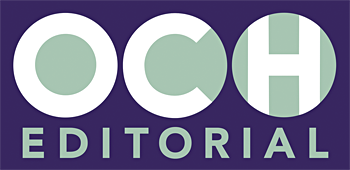Copy-editing
'The copy-editor’s main aims are to remove any obstacles between the reader and what the author wishes to convey, and also to save his firm time and money…’
Judith Butcher, Copy-editing: The Cambridge Handbook (Cambridge University Press, 2nd edn 1981)
Why a copy-editor is necessary …
Professional copywriters don’t always write in one go. Clear thinking is the key to clear writing. They think, they plan, they write. Then they edit. Very occasionally a writer may have such highly developed writing skills that no further work is necessary; but usually, careful editing of content is an essential stage in the journey, a vital process for anyone who writes anything.
Paraphrasing Judith Butcher, good copy-editing is invisible: its aim is to present the work the author would have written, given more time or more experience. Quite often the mind moves faster than the hand, yet second thoughts can be better – wiser counsel prevails; circumstances change. It is extremely rare for a written document to be letter-perfect the first time around.
As an editor, Christopher Long is (perhaps predictably) an advocate of the value-adding effect of careful copy-editing. Think, for example, of the hidden cost of publishing a badly presented document, publication or website; these – and by extension the organisation publishing them – lose their credibility quickly when the reader (or perhaps potential customer) is distracted by inconsistent spelling, poorly written text and grammatical errors, and badly presented figures and measurements. Despite all the technological innovation of recent years, the need for good copy-editing and proofreading skills has never been greater. A good argument or product should speak for itself, yet some careful refinement and polish in how it is presented will never do any harm.
The copy-editor must be a ruthless opponent of sloppy or redundant expression, equal to the task of confronting obscure meaning. The editor acts as a vital behind-the-scenes intermediary between readers and the author – ensuring, for example, that:
- material is coherently organised, objective, consistent and well presented, making the author’s meaning clearer
- where necessary, overly complex language is simplified (the language of everyday speech may be preferred to that of lawyers or bureaucrats)
- any stylistic idiosyncrasies, redundant expressions and awkward terminology that might confuse the reader are unobtrusively removed
- those essential attributes of any work of authority – grammar, syntax and punctuation – are checked and where necessary corrected, so that the article or book reads well
- no embarrassing errors or possibly libellous or derogatory statements are made
- whenever the thread of the argument wavers or is uncertain, or where facts have been omitted or are obscure, or unresolved questions remain, the author is queried and the text corrected
- time-worn clichés are avoided
- the correct tone is used.
The hoped-for outcome is a clear, elegant and compelling message – a document in which all is as it should be; moreover, a document which can be transmitted to the next stage of publication (typesetting, usually, then printed form, or on-line as an alternative) without further (and costly) problems emerging later. But achieving this outcome should not be thought of as a step-by-step, formulaic process.
… and how to find one
Choosing the right editor is never easy. The author must feel a strong degree of trust and confidence in the editor, who in turn must have a sound appreciation of the subject matter, and sensitivity to the needs of the intended readership.
Good editors tend to be busy people, in demand and often booked up months ahead. Most work only in specific subject areas. Their work can be demanding, and taking on a new client can sometimes be a mixed blessing, requiring equal investments of time and trust from both parties to the transaction.
Having been in publishing for many years, Christopher Long has worked with and maintains contact with a team of highly experienced editors (‘editor’s editors’, if you will), who can be entrusted with complex tasks (or even those that are utterly straightforward), in the near-certain knowledge that the necessary tasks will be carried out without any drama in a professional and competent way.
Contact OCH Editorial if you would like further information.
